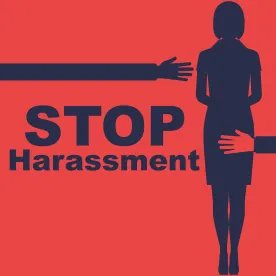In a rare showing of bipartisanship, the Senate passed the Ending Forced Arbitration of Sexual Assault and Sexual Harassment Act, which allows employees or others to escape mandatory arbitration clauses in connection with any case raising issues of sexual harassment or assault. President Biden previously expressed support for the bill and is expected to quickly sign it into law.
Specifically, the bill gives employees and others alleging a “sexual assault dispute” or “sexual harassment dispute” the ability to elect to render a mandatory arbitration clause invalid or unenforceable. Because this ability is phrased as an “election,” it appears that the person resisting arbitration must affirmatively challenge the arbitration agreement, rather than the arbitration agreement being entirely unenforceable. The bill defines a “sexual assault dispute” is defined as a “dispute involving a nonconsensual sexual act or sexual contact”. A “sexual harassment dispute” is defined as a dispute relating to any of the following conduct directed at an individual or group of individuals:
-
Unwelcomed sexual advances.
-
Unwanted physical contact that is sexual in nature, including assault.
-
Unwanted sexual attention, including unwanted sexual comments and propositions for sexual activity.
-
Conditioning professional, educational, consumer, health care, or long-term care benefits on sexual activity.
-
Retaliation for rejecting unwanted sexual attention.”
The bill applies not only to federal claims under Title VII of the Civil Rights Act of 1964, but also to state and tribal law claims as well. Employees can also avoid class, collective, or multi-plaintiff action waives in connection with sexual harassment or sexual assault disputes. In addition, the bill provides that the validity and enforceability of an agreement is to be decided by the court, rather than an arbitrator, which will likely increase the probability that disputes will be resolved in favor of court litigation rather than arbitration.
Employees frequently bring a sexual harassment, also referred to as hostile work environment, claim as part of a broader action with other employment-based claims. Although the bill does not explicitly address how mandatory arbitration would apply to such a mixed action, it provides that it reaches actions that “relate to” sexual harassment or assault claims. This broad language raises the prospect that employees alleging sexual harassment along with other, potentially unrelated claims will be able to litigate the entire dispute in court.
The new bill, once signed, will undoubtedly have far-reaching implications given the millions of individuals subject to arbitration clauses. Numerous recent Supreme Court decisions giving broad construction of the scope and applicability of the Federal Arbitration Act (“FAA”) may be called into question. Polsinelli attorneys will continue to monitor for related developments.
Arbitration has long been a key tool in employers’ playbooks to manage their risk and potential liability under the plethora of federal, state, and local laws governing their personnel practices. This bill deals a blow to employers’ ability to mandate arbitration in the context of sexual harassment claims.




 />i
/>i

